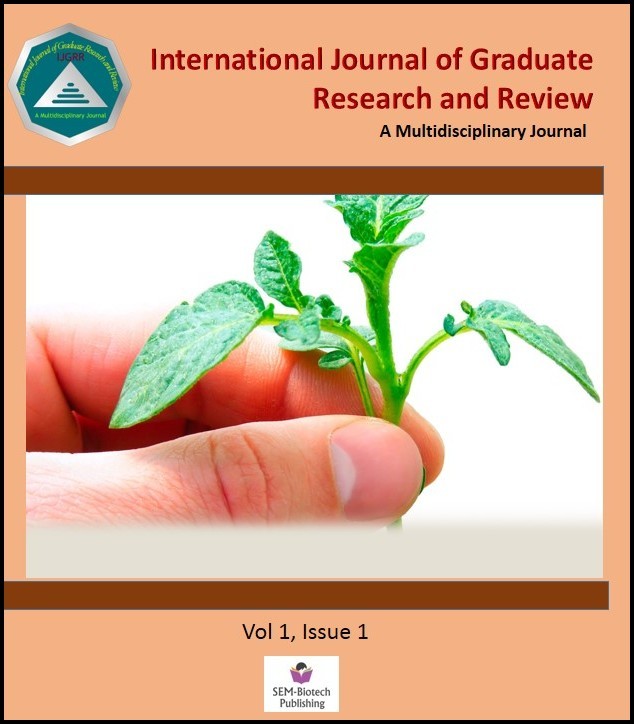





Advances in Maize-Based Bioethanol Production and Its Prospects in Nepal
Kailash Pandey*, Bijay Shrestha2, Samikshya Khanal2, Debraj Adhikari1, Chitra Bahadur Kunwar3
1*Prime Minister Agriculture Modernization Project (PMAMP), Junar Superzone, Sindhuli, Nepal
2Agriculture and Forestry University, Rampur, Chitwan, Nepal
3 National Maize Research Program, Nepal Agricultural Research Council (NARC), Chitwan, Nepal
Kailash Pandey*, Bijay Shrestha2, Samikshya Khanal2, Debraj Adhikari1, Chitra Bahadur Kunwar3
1*Prime Minister Agriculture Modernization Project (PMAMP), Junar Superzone, Sindhuli, Nepal
2Agriculture and Forestry University, Rampur, Chitwan, Nepal
3 National Maize Research Program, Nepal Agricultural Research Council (NARC), Chitwan, Nepal
Abstract
The majority of energy demands of Nepal is met by petroleum imports. Massive use of gasoline and diesel has raised the annual CO2 emission of the country. Thus, a search for the renewable, secure and sustainable source of energy is imperative. Maize (Zea mays) has been widely used across the world for bioethanol production. It is the second most important crop of Nepal in terms of both area and production. Productivity and attainable yield of maize in Nepal is 2.55 mt/ha and 5.70mt/ha respectively. The huge yield gap and scope of increasing productive area attest the possibility of increasing maize biomass production. Maize can be utilized in the bioethanol industry, generating ethanol for fuel and high-value co-products for feed. The starch fermentation process generates co-products like distillers dried grains with solubles, corn gluten meal, corn gluten feed and corn oil that can be used in the feed industry. Cellulosic ethanol is derived from lignocellulose, a substrate highly recalcitrant to enzymatic breakdown. Molecular and genomic tools have been used to study the cellulose assembly and its deposition pattern, biosynthesis of the lignocellulosic machinery and reducing lignin concentration. Transgenic maize with green-specific expression mechanism has been developed to produce cellulase within their biomass. Tropical temperate hybrid maize producing high biomass with low inputs have been developed. For a developing country like Nepal, maize-based bioethanol can meet energy demands, sustain agricultural production and create entrepreneurship opportunity.
Keywords: Bioethanol; energy; lignocellulose; maize; starch
The majority of energy demands of Nepal is met by petroleum imports. Massive use of gasoline and diesel has raised the annual CO2 emission of the country. Thus, a search for the renewable, secure and sustainable source of energy is imperative. Maize (Zea mays) has been widely used across the world for bioethanol production. It is the second most important crop of Nepal in terms of both area and production. Productivity and attainable yield of maize in Nepal is 2.55 mt/ha and 5.70mt/ha respectively. The huge yield gap and scope of increasing productive area attest the possibility of increasing maize biomass production. Maize can be utilized in the bioethanol industry, generating ethanol for fuel and high-value co-products for feed. The starch fermentation process generates co-products like distillers dried grains with solubles, corn gluten meal, corn gluten feed and corn oil that can be used in the feed industry. Cellulosic ethanol is derived from lignocellulose, a substrate highly recalcitrant to enzymatic breakdown. Molecular and genomic tools have been used to study the cellulose assembly and its deposition pattern, biosynthesis of the lignocellulosic machinery and reducing lignin concentration. Transgenic maize with green-specific expression mechanism has been developed to produce cellulase within their biomass. Tropical temperate hybrid maize producing high biomass with low inputs have been developed. For a developing country like Nepal, maize-based bioethanol can meet energy demands, sustain agricultural production and create entrepreneurship opportunity.
Keywords: Bioethanol; energy; lignocellulose; maize; starch
Full text: PDF
Int. J. Grad. Res. Rev.Vol-5, Issue-2: 122-130



